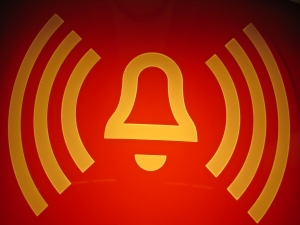The Copyright Alert System is Here
Posted by aonenetworks On February 28, 2013 In an effort to catch illegal downloaders and stop them from stealing information and videos, AT&T, Cablevision, Verizon, Time Warner, and Comcast have all signed on to financially support the new Copyright Alert System that has been designed to “educate” consumers that have chosen to download games, music, and other forms of media illegally.
In an effort to catch illegal downloaders and stop them from stealing information and videos, AT&T, Cablevision, Verizon, Time Warner, and Comcast have all signed on to financially support the new Copyright Alert System that has been designed to “educate” consumers that have chosen to download games, music, and other forms of media illegally.
Though the formal name of this program is “Copyright Alert System,” it’s informally being called “six strikes” by those who are getting this new plan in motion. Five major ISPs have joined the fight so far, and several others are considering their cards carefully before they sign on as well, such as Cox.
The goal is not to punish copyright violators per se, but to educate them and curb copyright infringement that is, at the moment, rampant among consumers in the US. Instead of going after pirates, the new act actually goes after the consumers who choose to download pirated material.
“Implementation marks the culmination of many months of work on this groundbreaking and collaborative effort to curb online piracy and promote the lawful use of digital music, movies and TV shows,” Jill Lesser, an exec for the Center of Copyright Information, stated today on her blog. “The CAS marks a new way to reach consumers who may be engaging in peer-to-peer (P2P) piracy.”
In addition to five gigantic ISPs sharing this fight, the initiative is also being backed by the White House and several Hollywood copyright holders.
Six strikes has been in the works since 2011 and should have gone into effect last December. But due to Hurricane Sandy and the reluctance from some particular ISPs, the CAS has been delayed until this year. However, it does look like it is actually going to happen and is well underway.
Lesser went on in her post to explain a little more about the CAS. “Over the course of the next several days our participating ISPs will begin rolling out the system. Practically speaking, this means our content partners will begin sending notices of alleged P2P copyright infringement to ISPs, and the ISPs will begin forwarding those notices in the form of Copyright Alerts to consumers. Most consumers will never receive Alerts under the program. Consumers whose accounts have been used to share copyrighted content over P2P networks illegally (or without authority) will receive Alerts that are meant to educate rather than punish, and direct them to legal alternatives.”
This is only the beginning of six strikes, and we will eventually begin to see much more strict copyright rules and regulations as this new alert tool spread throughout several more ISPs.





